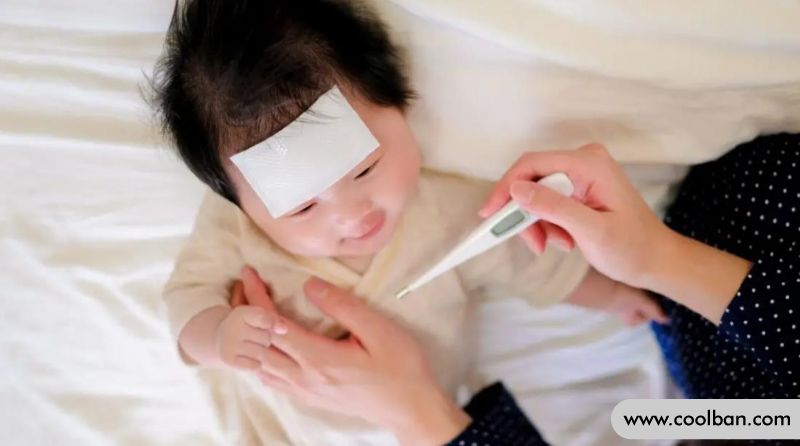What should I do if my baby has a seizure?
Convulsions are a common form of epileptic seizures and are a common clinical emergency in pediatrics. The probability of occurrence in childhood is about 4% to 6%, which is 10 to 15 times that of adults. Baby seizures are usually characterized by skeletal muscle motor seizures, and occasionally accompanied by disturbance of consciousness. Seizures, such as baby convulsions, can also occur in the course of many acute diseases in children. They appear as a result of an acute primary disease and disappear with the end of the primary disease, so such seizures cannot be diagnosed as epilepsy.

Reasons for baby convulsions:
The baby was sitting and playing obediently, but suddenly his head was tilted, his eyes were bulging, his mouth was foaming, and his whole body twitched. The mother was terrified and immediately picked up the baby and ran to the hospital. Bulging eyes, stiff or shaking limbs, confusion, and even urinary incontinence are typical symptoms of seizures in babies. Convulsions in babies are sudden, dangerous, and can have serious consequences if left untreated. There are many reasons why babies have seizures, let’s take a look at them together!
Several common diseases that cause seizures in babies are: febrile seizures, intracranial infection, toxic encephalopathy, infantile spasms, hypoglycemia, hypomagnesemia, poisoning, and hypocalcemia. Children have different reasons for tics at different ages.
Neonatal period: birth trauma, asphyxia, intracranial hemorrhage, sepsis, meningitis, tetanus and bilirubin encephalopathy are more common, and sometimes brain developmental defects, metabolic abnormalities, giant cell inclusion body disease and toxoplasmosis should be considered.
Infants and young children: febrile convulsions, toxic encephalopathy, intracranial infection, tetany, and infantile spasms are more common. Sometimes, attention should be paid to brain developmental defects, sequelae of brain injury, drug poisoning, hypoglycemia, etc.
Childhood: Toxic encephalopathy, intracranial infection, epilepsy, poisoning are more common, and attention should be paid to intracranial space-occupying lesions and hypertensive encephalopathy sometimes.
What should I do if my baby has a seizure?
A baby's seizure is a temporary dysfunction of the neurons in the brain. When the attack occurs, you need to lie on the side of the baby room bed, loosen the belt and neckline, put a cloth pad between the upper and lower teeth, and do not disturb the baby. If the baby has too much secretions, it must be sucked out with a straw, pay attention to the baby's breathing, and ensure that the breathing is smooth. The treatment of baby seizures is firstly for the primary lesion followed by seizures.
Method 1: If blood sugar is low, 10% dextrose should be given intravenously;
Method 2: If hypocalcemia occurs, give 10% calcium gluconate for treatment (note: the calcium gluconate speed should not exceed 50 mg/min, and the heart should be monitored continuously). Vascular exudation should be avoided, otherwise it will cause skin corrosion. If hypomagnesemia occurs, intramuscular injection of 50% magnesium sulfate should be given;
Method 3: Use of phenobarbital to treat convulsions per se. Phenobarbital must be given intravenously, especially if your baby has repeated or prolonged seizures. Phenobarbital can be given by mouth when the baby's seizures are under control.
Approach 4: Infants on anticonvulsants should be closely observed, overdose can cause respiratory depression, respiratory arrest is more dangerous than the convulsions themselves, and anticonvulsants must be continued until the convulsions are controlled and subsequently occur Reduced risk of convulsions.

How to prevent baby convulsions?
Baby convulsions have a certain impact on the baby's health. In severe cases, it will endanger the baby's health and intellectual development. As the saying goes, prevention is better than cure, and if you want your baby to stay safe from pediatric convulsions, you must actively prevent them.
The main methods are:
Prevention Method 1 : Strengthening Nursing Care and Physical Exercise. When the weather changes, add or reduce clothes in time to avoid catching a cold; try not to go to public places and places with a large floating population, such as supermarkets, stations, cinemas, etc., to avoid catching a cold; if an adult at home has a cold, you need to wear a mask. Minimize contact with the baby as much as possible; open windows frequently for ventilation, let the baby go outdoors more, let the body adapt to the environment, improve the baby's resistance, and reduce the occurrence of infectious diseases.
Prevention method 2: Pay attention to nutritional balance. In addition to the milk diet, the baby should also be supplemented with complementary foods, such as cod liver oil, calcium tablets, vitamin B1 and vitamin B6 and various minerals, so that the baby will not be hungry, so as to avoid low calcium and hypoglycemic convulsions.
Prevention method 3: Appropriate and rational use of drugs should be used to prevent babies from taking poisonous drugs by mistake.
Prevention Approach 4: Enhanced Care. After the baby cools down, observe the body temperature and sweating. If the fever subsides due to sweating, the condition will improve. Dry the baby's body in time and change the clothes and bedding to prevent catching a cold. In addition, it is necessary to prevent the baby from hitting the head and causing brain trauma, let alone hitting the baby's head with your hands
